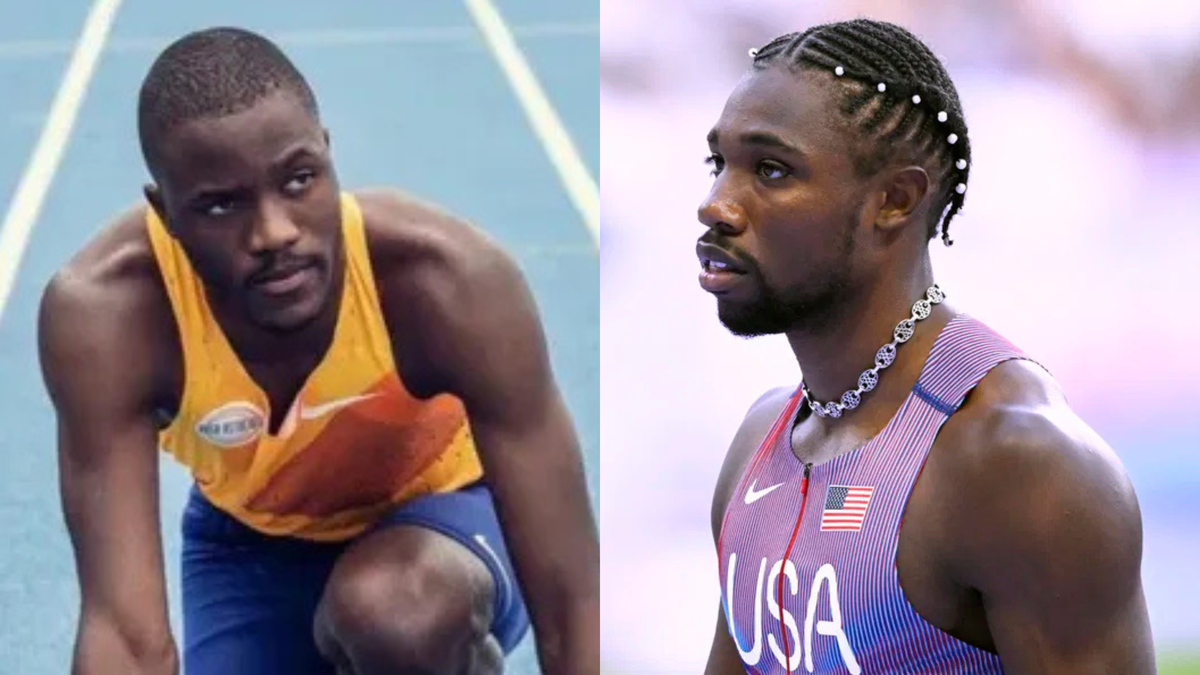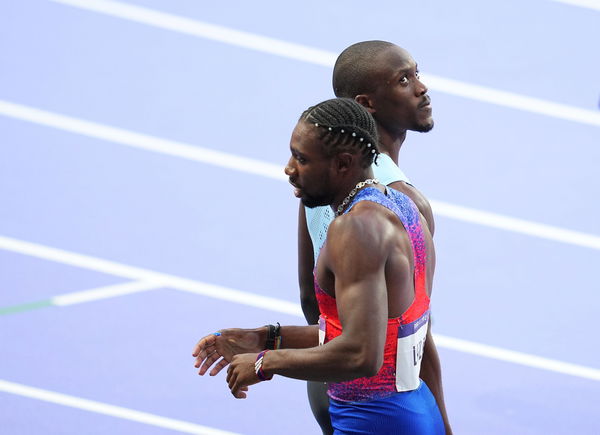
Imago
Image Credit: IMAGO

Imago
Image Credit: IMAGO
Botswana’s Olympic champion Letsile Tebogo once remarked that he could not see himself as “an arrogant or loud person like Noah” when asked about his American rival following the Paris 2024 Games. The comment sparked curiosity about their contrasting personalities, setting the stage for one of track and field’s most compelling rivalries. That contrast, first framed in Paris when Tebogo denied Noah Lyles a second Olympic gold, has grown sharper with every subsequent meeting.
Watch What’s Trending Now!
The rivalry found new life this July in Monaco. Lyles, returning to the 200 meters for the first time since the Olympics after managing an ankle injury, lined up against Tebogo at the Diamond League meeting on July 11, 2025. Tebogo arrived with the season’s leading time, while Lyles had not contested the distance in nearly a year. The race drew the spotlight for its symbolic significance: the Olympic 100-meter gold medalist against the 200-meter Olympic champion. It ended with Lyles prevailing in 19.88 seconds, narrowly ahead of Tebogo’s 19.97. Tebogo acknowledged the outcome, mentioning that a shortened warm-up had hindered his preparation, but he did not dispute Lyles’s victory.
ADVERTISEMENT
Now, ahead of the Zurich Diamond League Final, Tebogo has added a subtle twist to the narrative. Sharing the official promotional post that paired his image with Lyles’s, he captioned it in his native language, Tswana, “Gwabe go simologile😹😭,” a phrase translating to “Then it started.” The remark carried an unmistakable suggestion that their Olympic clash and the Monaco rematch were merely the beginning of a broader storyline between the two sprinters. His choice to underscore the rivalry in his own language added another layer of intrigue to a contest already rich in history.

Imago
240808 — PARIS, Aug. 8, 2024 — Noah Lyles L of the United States and Letsile Tebogo of Botswana react after the men s 200m final of Athletics at the Paris 2024 Olympic Games, Olympische Spiele, Olympia, OS in Paris, France, Aug. 8, 2024. PARIS2024 FRANCE-PARIS-OLY-ATHLETICS-200M-MEN XuxChang PUBLICATIONxNOTxINxCHN
The Zurich Final is scheduled for Wednesday, August 27, and Thursday, August 28, 2025. Events on the opening day will unfold at Sechseläutenplatz, while the decisive races, including the men’s 200 meters, will be staged at the Letzigrund Stadium on the second day. Twenty-seven champions will be crowned across the two days, but the anticipated Lyles–Tebogo duel is expected to command unusual attention.
ADVERTISEMENT
Both men enter Zurich with reputations to defend. For Lyles, the Monaco victory reaffirmed his strength over 200 meters after the setback in Paris. For Tebogo, a performance under 20 seconds again confirmed his place among the world’s elite sprinters. Their next encounter will shape not only the Diamond League standings but also the expectations heading toward the 2025 World Championships in Tokyo. However, beyond this, Noah Lyles once set aside their rivalry to commend Letsile Tebogo for his selfless actions during Botswana’s floods.
ADVERTISEMENT
Noah Lyles Salutes Letsile Tebogo’s Heroic Act With Rare Words of Respect
When Letsile Tebogo stepped into floodwaters in Gaborone to tow stranded vehicles to safety, it was an image of resolve that spread quickly across screens. The young sprinter, often known for his raw speed, became the subject of international attention for his decision to take part directly in the relief effort. His presence in the midst of the emergency was captured on video, shared widely, and lauded by citizens who had witnessed the disruption first-hand. The gesture carried weight beyond athletics, showing him as someone who chose to act in the most practical way at a moment of distress.
ADVERTISEMENT

Reuters
Paris 2024 Olympics – Athletics – Men’s 200m Final – Stade de France, Saint-Denis, France – August 08, 2024. Letsile Tebogo of Botswana reacts after winning gold with bronze medallist Noah Lyles of United States. REUTERS/Sarah Meyssonnier
The recognition came from far beyond Botswana. Among those who observed the scene with clear respect was Noah Lyles. The American sprinter, who had previously been cast in stories of rivalry against Tebogo, placed a comment beneath World Athletics’ acknowledgment of the act. His words were unembellished yet deliberate: “A true man of the people [emoji].” The remark, posted publicly, stood in marked contrast to the usual competitive narratives that tend to frame their interactions. It carried no undertone of performance or rivalry but instead acknowledged Tebogo’s willingness to serve others in a moment of urgency.
ADVERTISEMENT
For followers of the sport, the comment became its own signal of recognition. Noah Lyles, whose voice carries considerable reach in global athletics, did not employ elaborate praise but identified a single quality that mattered in that circumstance. The exchange reframed the dialogue between two figures often written as adversaries, offering instead a glimpse of respect built upon character rather than competition. In that instance, the rivalry briefly gave way to acknowledgment, and the conversation in athletics circles shifted to the image of one athlete supporting another’s choice to stand with his community.
ADVERTISEMENT
ADVERTISEMENT
ADVERTISEMENT